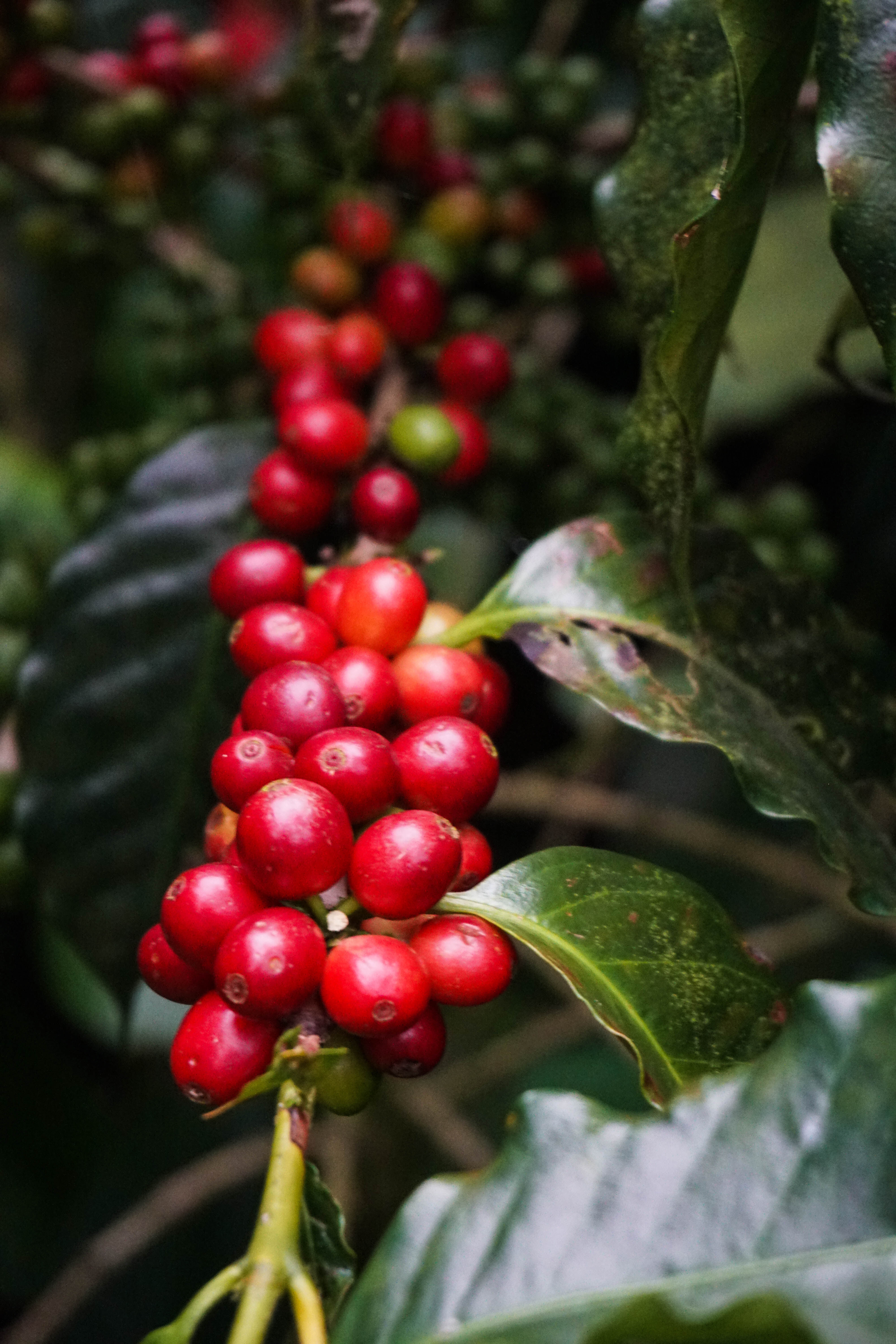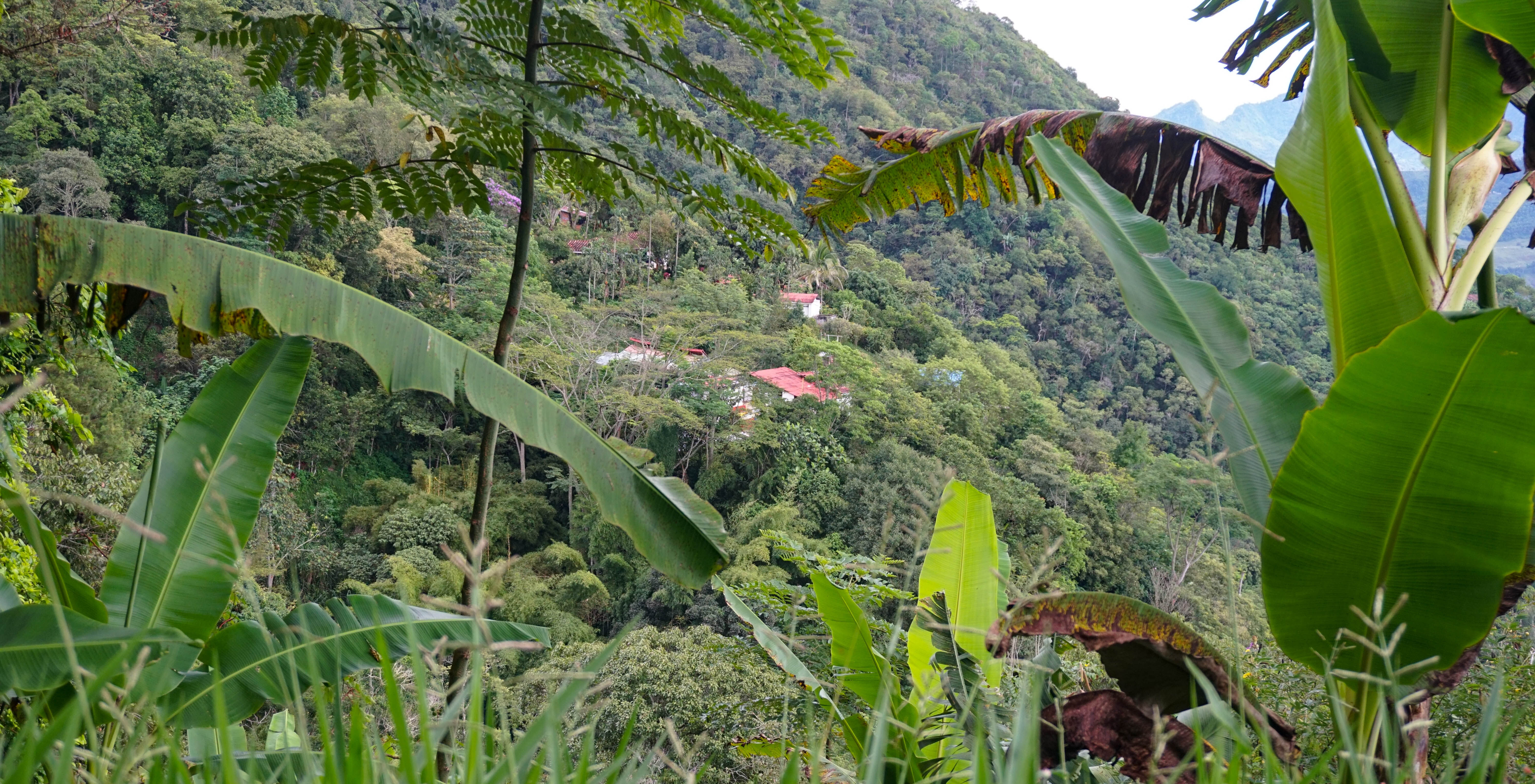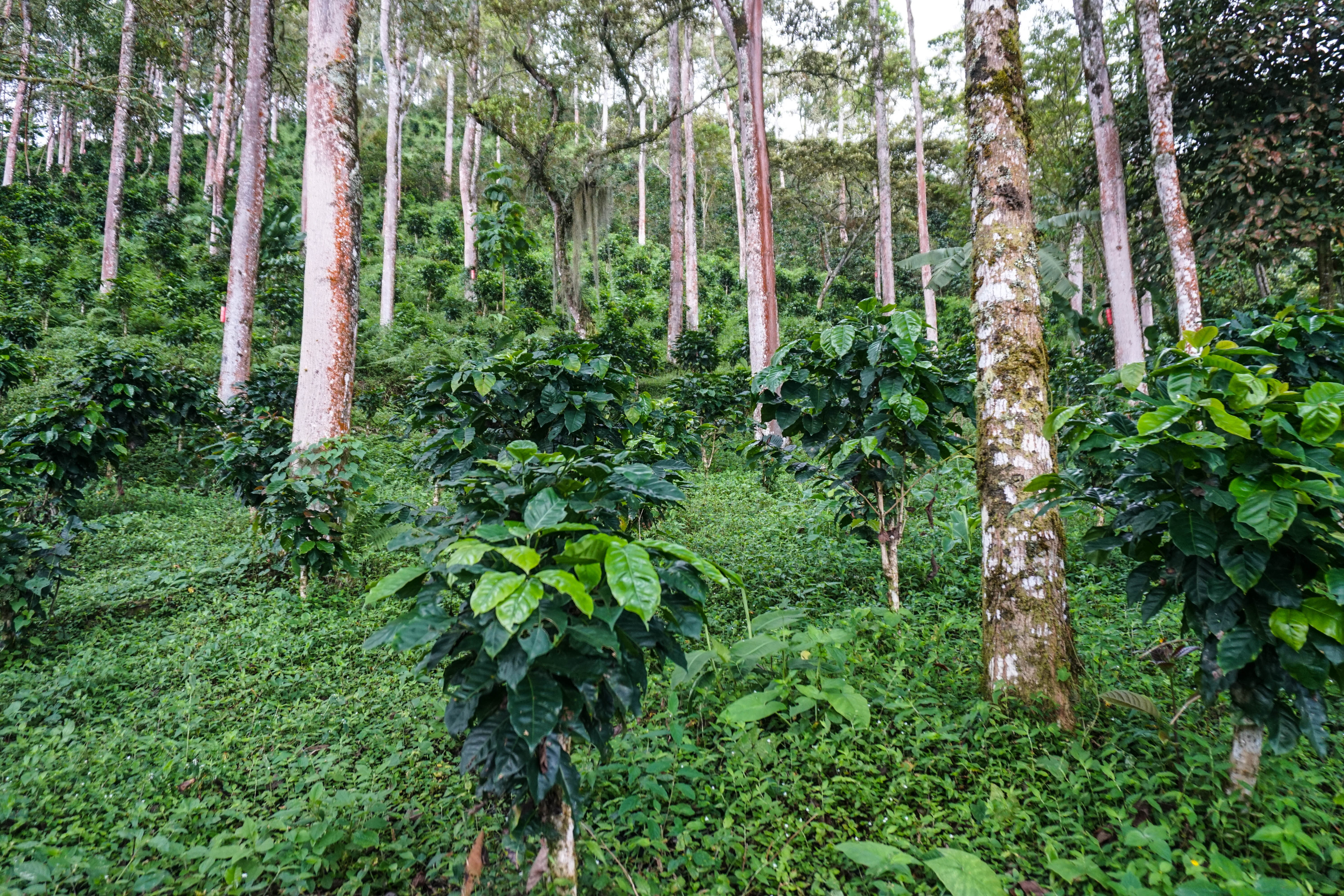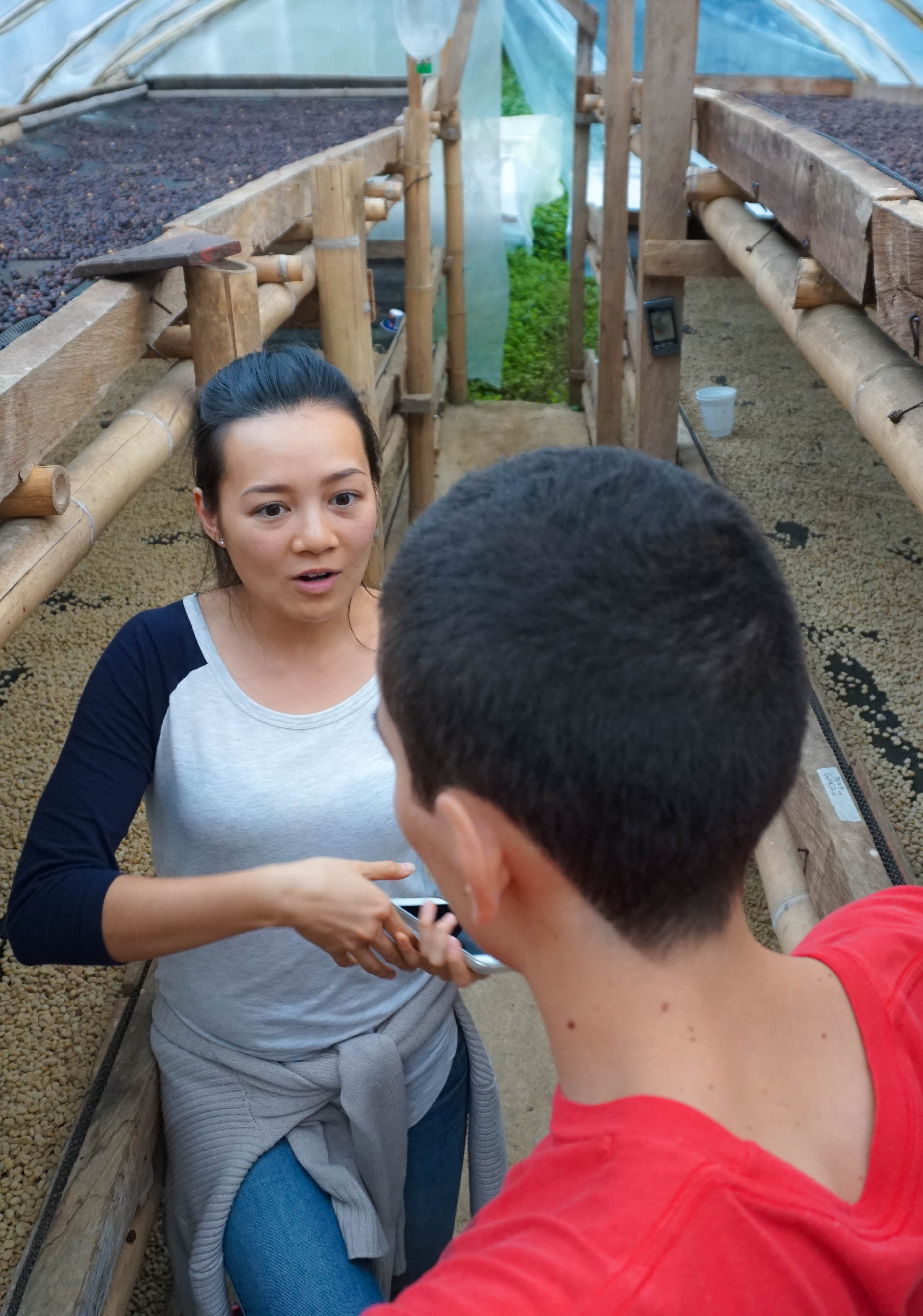Chelsea Cervantes visits Café Cocondo
ISE student Chelsea Cervantes sees firsthand the organic coffee production at Café Cocondo
 REYKJAVIK, January 6 - After receiving approval to study the geothermal site at Nevado del Ruiz in Colombia, Chelsea Cervantes sought out housing, packed her bags and downloaded Duolingo. With the help of her supervisor, Daniela Blessent, Chelsea found a home with a warm and welcoming family in the city of Medellín.
REYKJAVIK, January 6 - After receiving approval to study the geothermal site at Nevado del Ruiz in Colombia, Chelsea Cervantes sought out housing, packed her bags and downloaded Duolingo. With the help of her supervisor, Daniela Blessent, Chelsea found a home with a warm and welcoming family in the city of Medellín.
While working on creating a model for her geothermal site, Chelsea became immediately integrated in Colombian life with the help of her new family there. Communication was not always easy, as Chelsea was just learning to speak Spanish but with the help of her new Colombian mother and father, Fabiola and Luis, and their son Simon, Chelsea started picking up on the day to day conversations. She had heard that they produced organic coffee and after a few weeks, the family invited her to visit their farm or "finca" to see the process in action.
The heart of their business, Café Cocondo, is located near the small town of Titiribí in the region of Antioquia. Café Cocondo is one of five organic coffee producers in Colombia and the only organic producer in Antioquia. With the environment in their minds, Finca Cocondo is an excellent example of sustainability.
The farm is not only certified for organic coffee, but is also certified under the Rainforest Alliance for maintaining a healthy forest ecosystem on their farm, and under Ecocert for their sustainable practices. Certifications of this nature are awarded yearly and as such follow yearly audits. As seen in the photo below, the farm is practically a part of the surrounding forest and ecosystem.

For the family, sustainability and environmental stewardship are the basis on which they build their business. By organically producing coffee in the local mountainside forests, they maintain a sustainable ecosystem and show how every part of the coffee production can be sustainable. In the video below prepared by True Colombia Travel, Fabiola, Luis and the rest of the Cocondo team give us a glimpse of life on their farm.
As Chelsea was taken into the farm on the steep hillside overlooking the valley below, this is exactly what she saw - a farm in true harmony with it's surroundings. Chelsea recalls her drive into the farm from Medellín, sharing that,
Driving into the farm was a lot of fun. There are winding roads that lead in and out of small towns, and you can see the scenery change dramatically as you go, from a concrete jungle to mountains, and actual jungle. The farm is located on the side of a mountain, so getting there once you hit the turn-off is like a steep, winding, slow motion cliff-side roller coaster. It was exciting to be moving through unreal, lush forest and being able to see the dozens of coffee plants lining the hills. The amount biodiversity on the farm was amazing, it didn't even look a farm at first, just a thriving forest. It was all pretty surreal.

Chelsea further comments that,
Being at Cocondo farm was like stepping into an alternate reality that showed what Colombia truly was behind the big cities and concrete jungles. It's a little bit mysterious, but at the same time, inviting. One of the biggest, most notable things was how dramatically the air changes when you are out of the city and in the forest. It's so pure, clean and delicious, and it allows to many things to grow and thrive. There is always an orchestra of wildlife, birds, insects, if you just listen past the serene "quiet". Being there, you can really feel nature and it's so good for you. Everything is natural, you can pick fruit off the trees and bushes and just eat them. They're delicious and fresh and organic.
 While at the farm Chelsea was shown every step of the production process. There are several ways of producing coffee, each leaving behind different notes and flavors in the final bean. The standard way is as follows:
While at the farm Chelsea was shown every step of the production process. There are several ways of producing coffee, each leaving behind different notes and flavors in the final bean. The standard way is as follows:
Once picked, the coffee berries are sorted and the pulp, also known as "cáscara" is taken off of the bean. This pulp is then dried and sold as delicious tea, leaving no waste product. The raw bean on the other hand, is left to ferment for a period of time. This fermentation process naturally removes the starchy protective coating surrounding the bean by naturally occurring bacteria, without the addition of any chemicals. The beans are then dried using parabolic drying rooms as seen in the photo on the left, and then roasted on site in batches. Chelsea is seen in this photo learning about drying from Simon.
After having learned the how the beans are processed, Chelsea was taken into the forest herself for harvesting. At the perfect time in the year, Chelsea was able to experience a part of the work that went into every perfect cup of coffee. She recalls the experience stating that,
The experience left Chelsea taken aback. Seeing the process from plant to roast, she found a new level of appreciation for coffee and sustainability. For Chelsea, "there's nothing like learning about sustainability than to experience if firsthand." At Finca Cocondo, she saw it in everything they did. Chelsea was excited to hear as well that the farm has been evaluated and is the process of installing solar panels to their rooftops in order to produce their electricity sustainably as well. As Luis explains,Picking the coffee beans is a lot harder than it looks. Imagine being on a steep, unstable hill, with a weight attached to your hips, coffee plants surrounding you, not a lot to hold on to, and with high humidity. You have to be selective in the fruit that you pick, only the reddest and ripest should be taken off the tree because if not, the fruit still needs to mature. This affects the taste of the coffee in the end. You don't want to waste a single fruit because hard work goes into cultivating it and so you have to try not to drop any. And all this time you are sweating like crazy with spiders in your hair trying to keep your balance and not fall down the hill! It's intense. There is an incredible amount of work that goes into a single cup of coffee, and this is just the beginning. Being able to see it first hand definitely makes me appreciate it so much more - people work so hard just to collect it. At Cocondo, the coffee fruit is collected all by hand.
In short, Chelsea sums up her experiences stating that "the Cocondo farm is a beautiful example of sustainability applied - everything from environmental stewardship and sustainable energy, to fair treatment of workers. It's business done right."At the farm, we have enough surface area to provide energy for ourselves with solar and will hopefully be able to help the nearby villages also. This is our next big project. Once this is complete, we are also considering adding a small hydropower system on our hillside. If done right, we could use solar and hydro together to be fully sustainable and independent, while supporting the local community.
